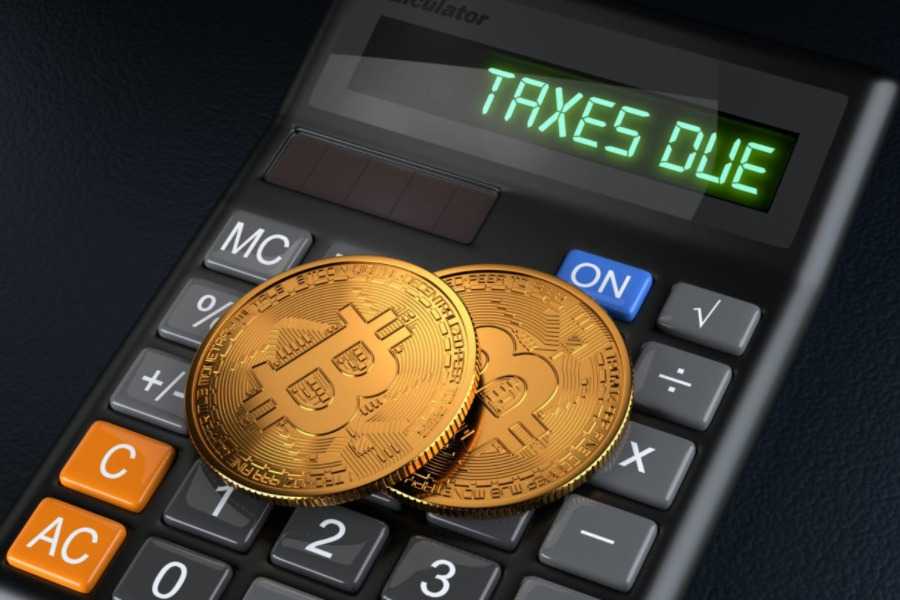
What Crypto do I Need to Report on Taxes?

Table Of Contents
As a crypto owner, you may be wondering what crypto you need to report on taxes.
The simple answer is that you need to report all of your crypto transactions on your taxes. This includes buying, selling, and trading crypto. You also need to report any crypto you receive as a gift or as payment for goods or services.
This article aims to shed light on some of the most frequently asked questions about cryptocurrency and taxes, drawing insights from three informative YouTube videos.
Do I Need to Pay Taxes If I Don’t Withdraw My Profits?

A common misconception among many cryptocurrency traders is that taxes are only due when profits are withdrawn from their trading account. However, this is not the case.
The Internal Revenue Service (IRS) considers a trade to be taxable when it closes, regardless of whether you withdraw the money or not.
For instance, if you bought Bitcoin for $10,000 and sold it for $60,000, you would owe taxes on the $50,000 profit, irrespective of whether you withdraw the money or leave it in your account. This is because the IRS views the completion of the trade as the taxable event, not the withdrawal of funds.
Do I Need to Pay Taxes If I Just Hold My Cryptocurrency?

Another question that often arises is whether you need to pay taxes if you buy cryptocurrency and simply hold onto it. The answer to this is no. The IRS only taxes completed trades.
This means that if you bought Bitcoin for $10,000 and it increased in value to $60,000, but you didn’t sell it, you wouldn’t owe any taxes. The increase in value is considered an unrealized gain, which is not taxable until the asset is sold and the gain is realized.
How Much Will I Owe in Taxes?

The amount you will owe in taxes depends on whether your gains are considered short-term or long-term. Short-term gains are for trades that are completed in one year or less, and they are taxed at your regular income tax rate. Long-term gains are for trades that are held for more than a year, and they are taxed at a lower rate.
For example, if you bought Bitcoin for $10,000 and sold it the next day for $11,000, you would owe short-term capital gains taxes on the $1,000 profit. If you bought Bitcoin for $10,000 and sold it a year later for $60,000, you would owe long-term capital gains taxes on the $50,000 profit.
What Is the Tax Treatment for Lending Cryptos or Using Trading Robots?

Cryptocurrency offers a plethora of opportunities beyond simple buying and selling. For instance, you can lend your cryptocurrencies or use trading robots to optimize your trading strategy.
If you are lending out your cryptocurrencies, the interest you earn is considered interest income and is taxable. If you are using a trading robot, the gains are likely to beconsidered short-term capital gains since the robot is likely making high-frequency trades.
Can I Reinvest My Cryptocurrency Gains to Defer or Avoid Taxes?

Many investors wonder if they can reinvest their cryptocurrency gains to defer or avoid taxes, similar to the like-kind exchanges in real estate. However, the IRS has explicitly stated that cryptocurrencies cannot be used for like-kind exchanges. This means that you cannot defer or avoid taxes by reinvesting your cryptocurrency gains into other cryptocurrencies. This rule is a clear indication of the IRS’s stance on cryptocurrency taxation.
Will the IRS Know About My Cryptocurrency Activities?

The visibility of the IRS into your cryptocurrency activities largely depends on where your account is located. If your account is with a company that is compliant with U.S. rules and regulations, then the IRS will know about your trades because the company will report them.
If your account is with a company that is not compliant with U.S. rules, then the IRS will not have visibility into your trades.
Will My Crypto Accounts Send Me a Tax Form?

If your crypto account is with a company that is compliant with U.S. laws and IRS regulations, then they will send you a tax form. Companies like Coinbase and Robinhood, for example, will provide you with a 1099-B form.
If your account is with a company that is not compliant with U.S. laws, then they will not provide you with a tax form, and you will be responsible for reporting your trades on your tax return.
Conclusion

Cryptocurrency and taxes can be a complex topic, but it’s important to understand how your cryptocurrency activities affect your taxes. Remember, even if you don’t withdraw your profits or if you just hold onto your cryptocurrency, you may still owe taxes. Be sure to consult with a tax professional if you have any questions about your specific situation.
For more detailed information about blockchain and cryptocurrency, check out our other articles on explainblockchain.io, such as Can Blockchain Strengthen the Internet of Things, What Are Blockchain Applications, and How Do Bitcoins Make Money for Beginners.
Please note that this blog post is for informational purposes only and should not be used as a substitute for professional tax advice. Always consult with a tax professional for your specific tax situation.
Related Posts




Quick Links
Legal Stuff

